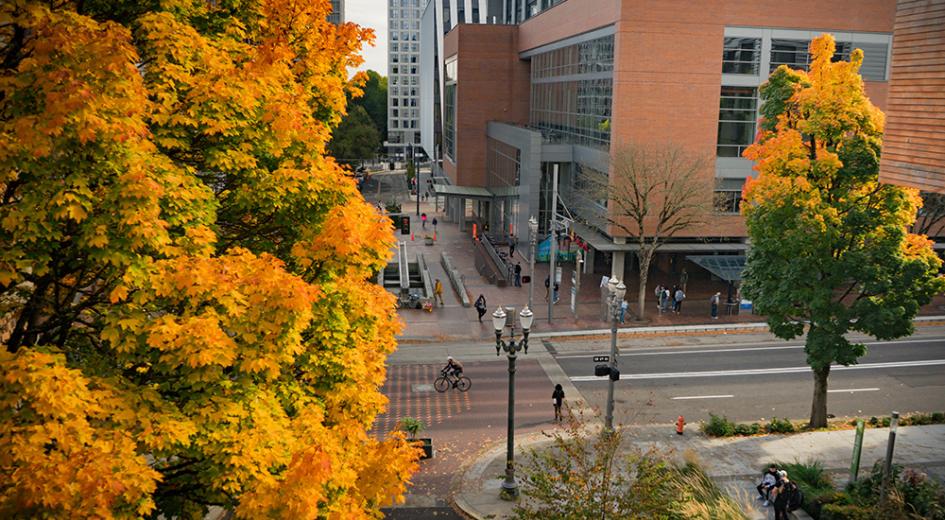
- Details
- By Neely Bardwell
Native students from anywhere in the United States can now attend Portland State University (PSU) for the same price as in-state students.
Previously, out-of-state Native students did not qualify for the in-state tuition prices. Now, out-of-state Natives who are enrolled in a federally recognized tribe can get their tuition rates decreased. All the student needs to prove this status is their enrollment card, or a letter from their tribe’s enrollment office.
Out-of-state tuition for PSU is about $29,000 as of 2019-20. The discount for these newly qualified students is about $420 per credit hour, or $19,000 an academic year for 15 credit hours a semester. Although this discount is not fully-free tuition, it is still a major step in the right direction in increasing equity in higher institutions for Native students.
"Portland State offers this benefit to tribal members as part of our ongoing effort to provide a welcoming environment for Indigenous students in downtown Portland," Chuck Knepfle, PSU's vice president of enrollment management, said in an announcement about the new program. "This offer of in-state tuition is a small way to honor the legacy of Indigenous nations from across the country."
For Natives who are members of one of the federally recognized tribes in Oregon, PSU is offering a new grant to cover any college-related costs for the 2022-23 academic year. There are also other scholarships and support programs for PSU Native students that are offered through the Native American Student and Community Center.
More Stories Like This
Hanging a Red Dress for Christmas: MMIP, Native Higher Education, and Hope for a Better New YearNative Students Can Win $5,000 Scholarship, International Distribution in Pendleton Design Contest
American Indian College Fund Raises Alarm Over Plan to Shift Native Programs Away From the Dept. of Education
MacKenzie Scott Foundation Gives $5 Million Contribution to Little Priest Tribal College
Tribal Leaders Push Back on Dismantling of U.S. Department of Education
Help us defend tribal sovereignty.
At Native News Online, our mission is rooted in telling the stories that strengthen sovereignty and uplift Indigenous voices — not just at year’s end, but every single day.
Because of your generosity last year, we were able to keep our reporters on the ground in tribal communities, at national gatherings and in the halls of Congress — covering the issues that matter most to Indian Country: sovereignty, culture, education, health and economic opportunity.
That support sustained us through a tough year in 2025. Now, as we look to the year ahead, we need your help right now to ensure warrior journalism remains strong — reporting that defends tribal sovereignty, amplifies Native truth, and holds power accountable.
 The stakes couldn't be higher. Your support keeps Native voices heard, Native stories told and Native sovereignty defended.
The stakes couldn't be higher. Your support keeps Native voices heard, Native stories told and Native sovereignty defended.
Stand with Warrior Journalism today.
Levi Rickert (Potawatomi), Editor & Publisher


